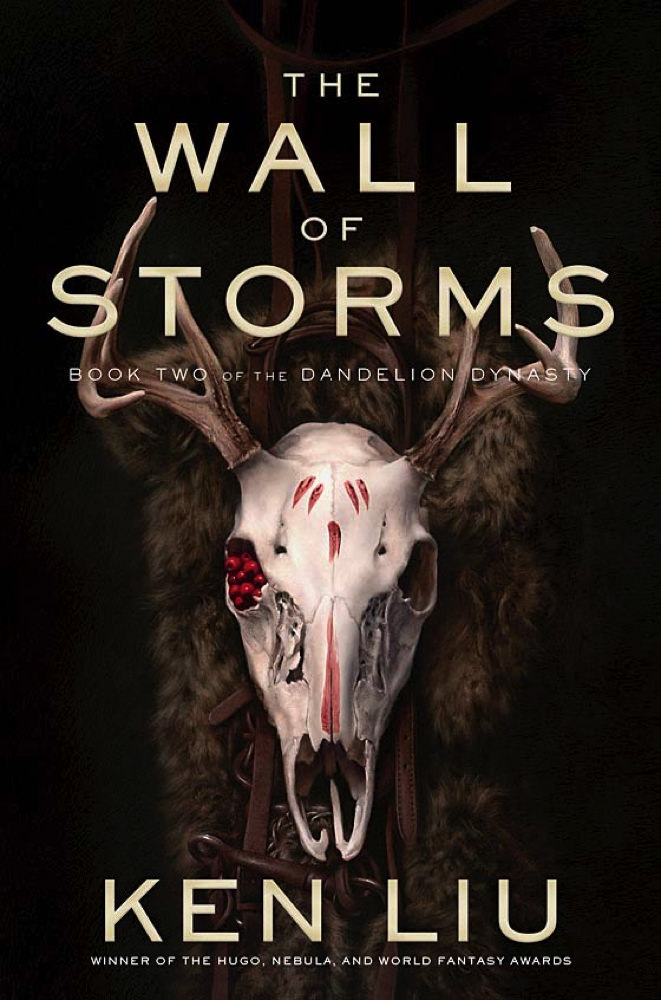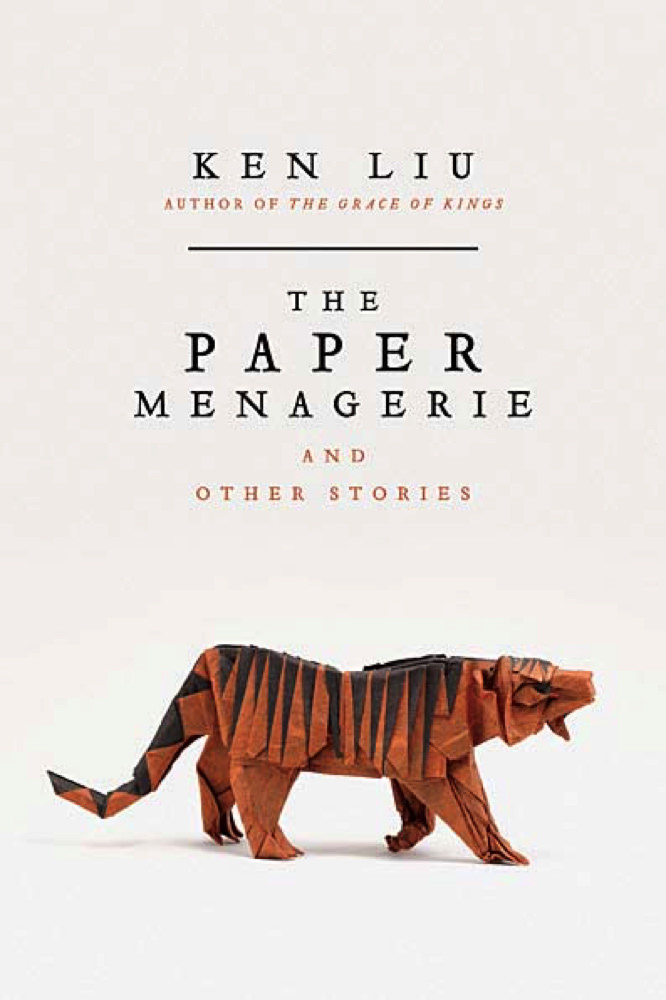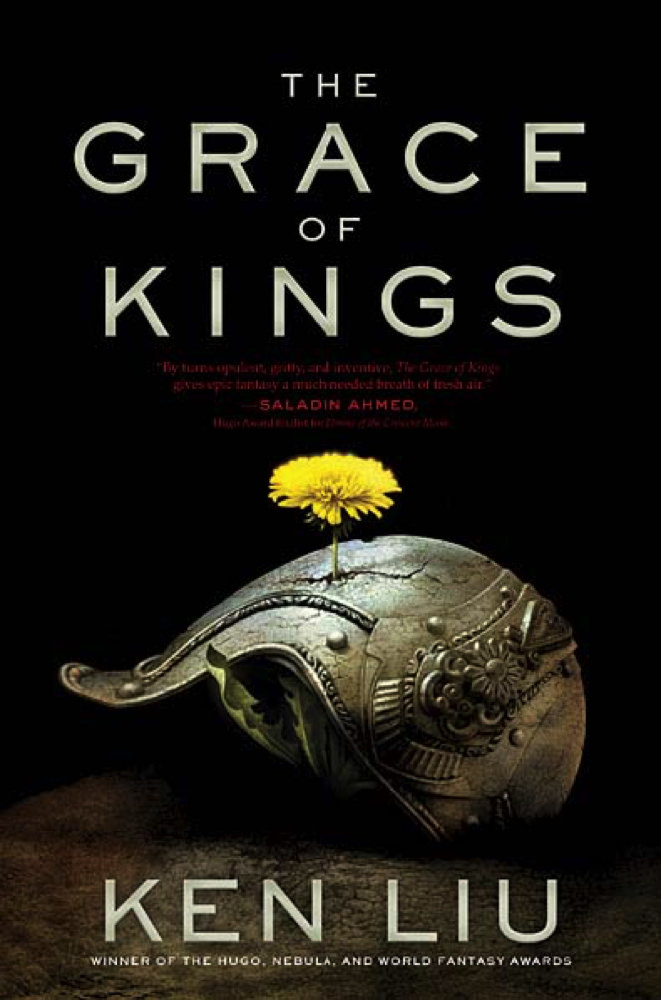There’s a kind of novel that comes with a full-color map and list of dramatis personae. Like the overture to an opera, this tells the audience what they’re in for; it prepares them to be transported. Ken Liu’s sprawler of a series-in-progress, The Dandelion Dynasty, is exactly that kind of fantasy, and it has something for every kind of nerd: references to Penelope’s plight in The Odyssey, play-by-plays of military maneuvers, specs for vehicles made of silk, wood, and sinew—even tax codes and trade regulations.
This smorgasbord represents the author’s varied enthusiasms. After concentrating in English and computer science, Liu ’98, J.D. ’04, worked as a software engineer and lawyer; he’s now a consultant on technology litigation. He cracks up while admitting to the origin of one plot device: a three-day civil-service test described as “a trial of endurance and steadfastness of will and purpose” and “not merely an exercise in reasoning and persuasion, but also a practical problem in three-dimensional geometry”—based on (what else?) the bar exam. Students, collapsing from exhaustion, are borne away on stretchers. Says Liu: “I wrote it like a battle scene.”

The series also takes in disparate literary traditions. Liu studied Western classics in college, and an Anglophone reader of the series’ first novel might trace its warlord figures back to swift-footed Achilles and wily Odysseus. Even the legion of side-characters in The Grace of Kings—a riot of princelings, bandits, and orphan boys—are reminiscent of The Iliad’s lesser fighters: countless yet individuated, each with his name and fate. Yet Liu, who is a longtime fan of the wuxia genre’s tales of martial-arts heroism, also planned for the plot to reimagine a Chinese “foundational narrative”: the Chu-Han Contention, the interregnum between the Qin and Han dynasties when two once-allied kings turned on each other. “It was a period and a set of events,” he explains, “that defined what it means to be Chinese as a cultural concept.” Fusion, especially in food, can get a bad rap—somehow managing to connote both blandness and exoticism. But Liu’s is a truly hybrid epic. Its influences aren’t decorative, but the bricks and mortar of a richly invented world. “In a way,” he says, “this story is very American.”
The Wall of Storms, just published, stages new contests. Liu describes it as “a much more modern novel,” drawing less on the archetypes of oral tradition. With the new emperor entering middle age, his task shifts from conquest to nation-building. The next generation—which includes shrewd princesses and woman scholars—must grapple with their elders’ political mythmaking. The story’s scope broadens even further with the arrival of an existential threat: an invading nomadic force (somehow suggesting both Vikings and Mongols), with steeds that breathe fire. Still, this is not a Manichaean, racialized clash à la Tolkien: “What I want to do is explore the complications of that kind of cross-cultural conquest,” he says, “and what happens to a culture, and what happens to a people who have to survive and make the best of a very terrible situation.”
A fascination with how identity can shift due to mass movement—across oceans, or galaxies—also threads through Liu’s short fiction. The title story in The Paper Menagerie is about a bullied American boy who thinks his immigrant mother “might as well be from the moon.” Another tale, “The Waves,” follows a family of species-shifting, interplanetary travelers who say, “Earth is just a very big ship.” But perhaps more fundamental is Liu’s concern with the fraught inheritance of history, and the obligations between parents and children. He traces these interests to his children’s births, and, more recently, his grandparents’ deaths: “As links in this living chain, what is our responsibility to the generation before and to the generation after? What are our duties toward culture and family?”


This investment in cultural transmission also aligns with his work as a translator. Recent projects include Death’s End, the final volume of Chinese science-fiction writer Cixin Liu’s celebrated trilogy, Remembrance of Earth’s Past, published in September, and a forthcoming short story anthology, Invisible Planets. It’s a commonplace that the art of translation requires negotiating cultural gaps, but sometimes a turn of phrase also poses political difficulties. In Death’s End, a character wears a tunic style known in China as a Zhongshan suit (after Sun Zhongshan, the Republic of China’s first president) and in the West as a “Mao suit.” But that usage, Liu says, “would give a very wrong interpretation”—Western readers would link the character too strongly with Chinese communism—so he opted to use the Chinese term, adding an explanatory footnote.
Liu tackles a version of this challenge even with his own English-language novels, where he’s careful to avoid shorthand that can trigger latent stereotypes. “If you start the story with a lot of Chinese people in Chinese clothes, speaking Chinese, using chopsticks, then people will immediately say, ‘Oh, I know what sort of story this is.’ You can’t do that.” He accessories his fantasy with utensils that aren’t chopsticks, and dots its skies with fire-breathing “garinafins” that aren’t dragons, giving it “a much more estranged look.” In a way, this is the trick of all his fiction: it de-familiarizes readers, and welcomes them to strange worlds. By the stories’ end—with the trickster taking the throne, or the case closed by the cyborg detective—distant places feel not so foreign, not so unlike home.









